There’s something rather appealing about the way Lexus (or more specifically, its Toyota parent) appears to go about the business of building fast cars.
It’s not that they’re an afterthought or a profitable side line; rather, they’re a spasmodic and unpreventable release of the latent enthusiasm that builds up when you are forced, for very good reasons, to spend most of the year grinding out Avensises and Aurises.
The discontinued Lexus LFA, a money-losing masterpiece that could not perhaps have been built anywhere else, is the most obvious example of this cathartic approach (although the current Toyota GT86, an extraordinary attempt to hotwire a niche concern into a mainstream offering, must run it close).
The IS F, though, predates them both. The four-door saloon, introduced in 2007, was more obvious territory for Lexus, but it was still conceived and developed in a way that made it seem more like muscle spasm than cast-iron range inclusion. It drove that way, too, being amusing and wayward and worrying in divertingly unequal measure.
The newer, fewer-doored Lexus RC F, our reason for assembling the cars that you see above, is an indirect descendant of that car – chiefly through its 5.0-litre V8 petrol engine.
In Europe, the repeat appearance of so many atmosphere-munching cylinders has provoked a collective raising of the eyebrows, most of them questioning the need for quite so much cubic capacity when the opposition – namely BMW and Mercedes-Benz – are now extracting more from significantly less.
Such dubiousness is valid, of course, if a little Eurocentric. Lexus is using the V8 not because it’s a warbling throwback, but because it’s the Euro 6-compliant global engine available, it being a tricked-up version of the unit that is slid into more humble fare, often with electric motors attached. This is why it can be made to function on the fuel-sipping (and gently power-sapping) Atkinson cycle, should you wish to attempt to draw the quoted 26.2mpg out of its hat.
Since the IS F, it has been revised again, mostly to make it rev higher and harder, producing yet more power along the way. The resultis the most powerful road-going Lexus V8 yet – the marketing department’s way of saying that it’s 54bhp perkier than before.
That, at least, compares favourably with the competition, a Germanic collective that is bisected by the RC F in terms of engine technology. On one hand, there’s the new BMW M4, torch-carrier for a future generation of cars dependent on forced induction.
On the other, there’s the Audi RS5, a leftover from the soon-to-be-extinct era when it was deemed okay to mount a supercar’s engine over the front axle and holler out “finished” to the rest of the factory. The M4 develops 425bhp and the RS5 444bhp, leaving the RC F, at 471bhp, looking even more muscle-bound than its many bulges already suggest.
Each, though, will do 0-62mph in about 4.5sec, seat four people in relative comfort and set you back the best part of £60k. Their designers shared a style guide, too, each being a different version of the same raked, narrow-eyed, cold-shouldered brute. The eldest, the RS5, has a certain Q-car subtlety about it.

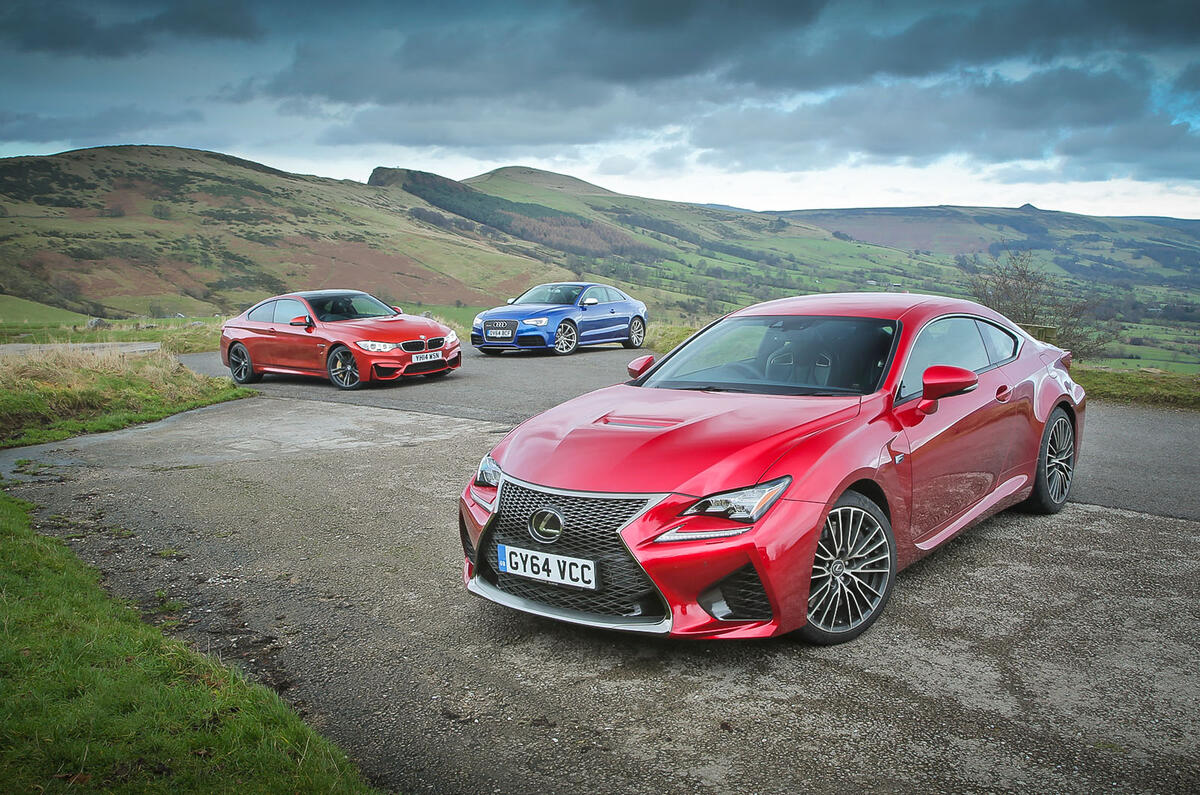
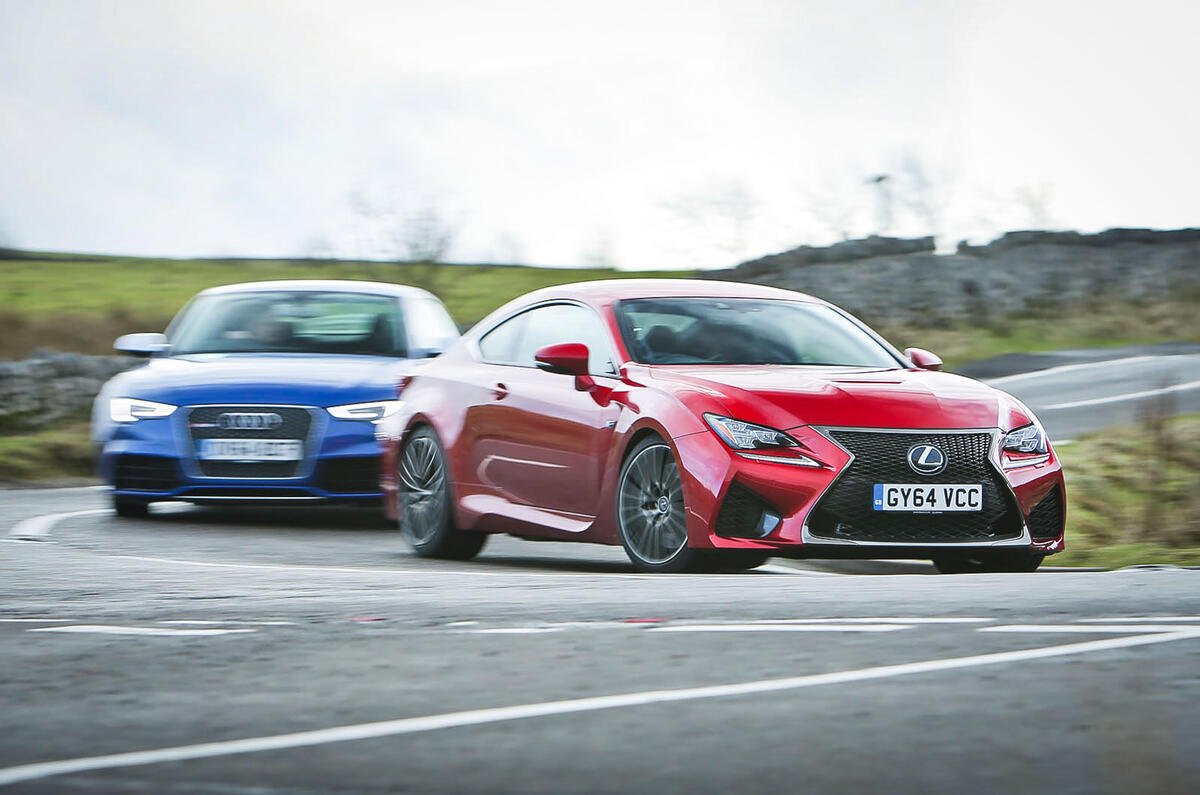
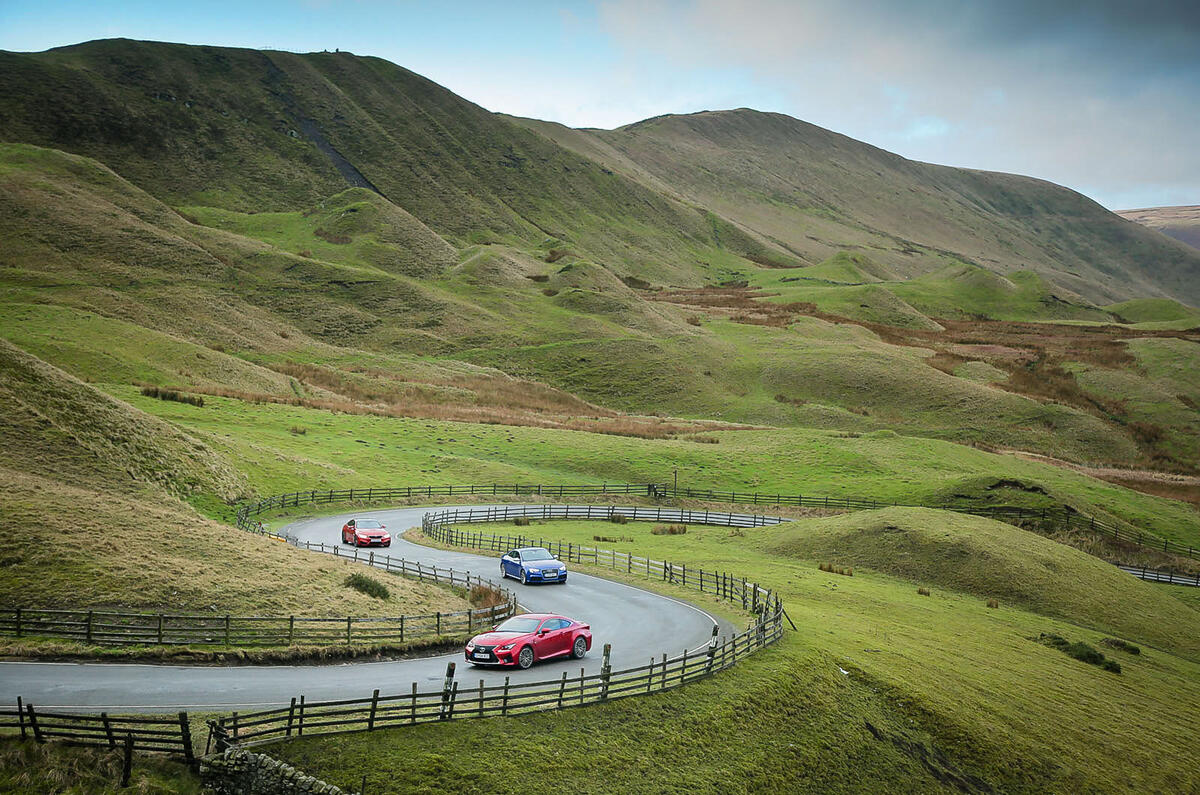
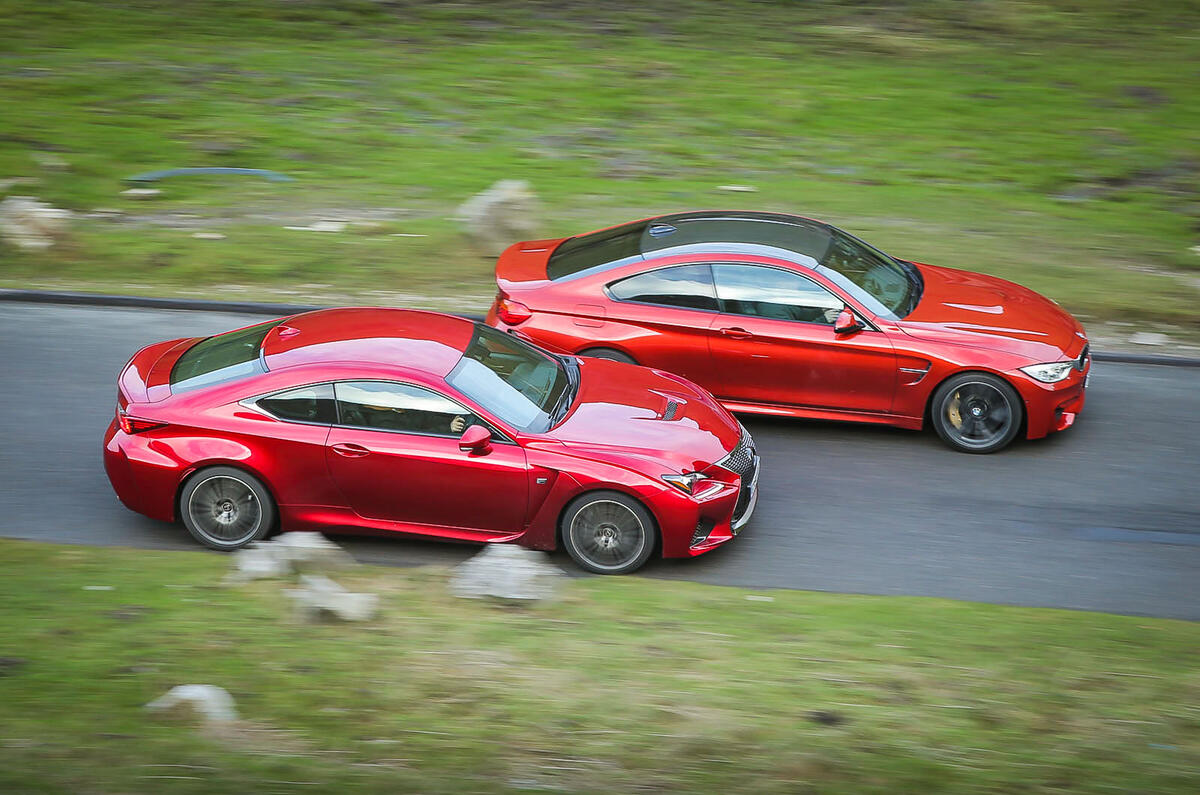
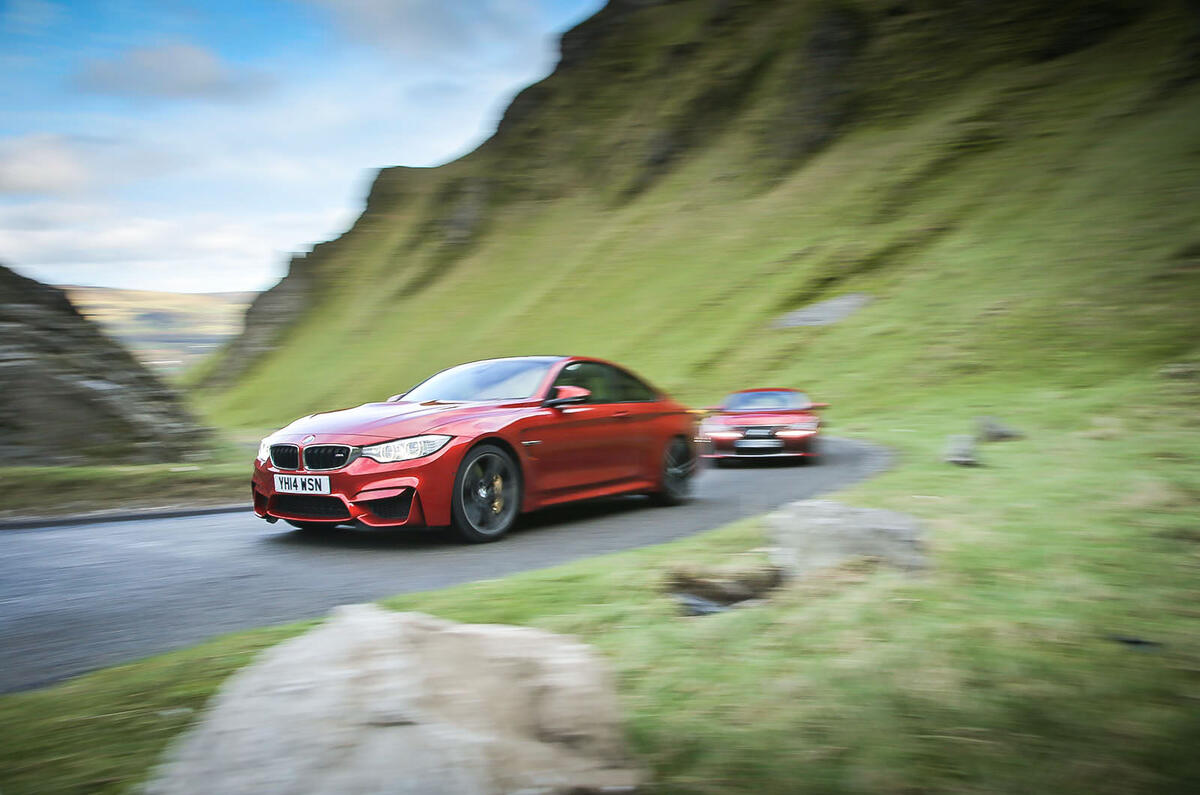
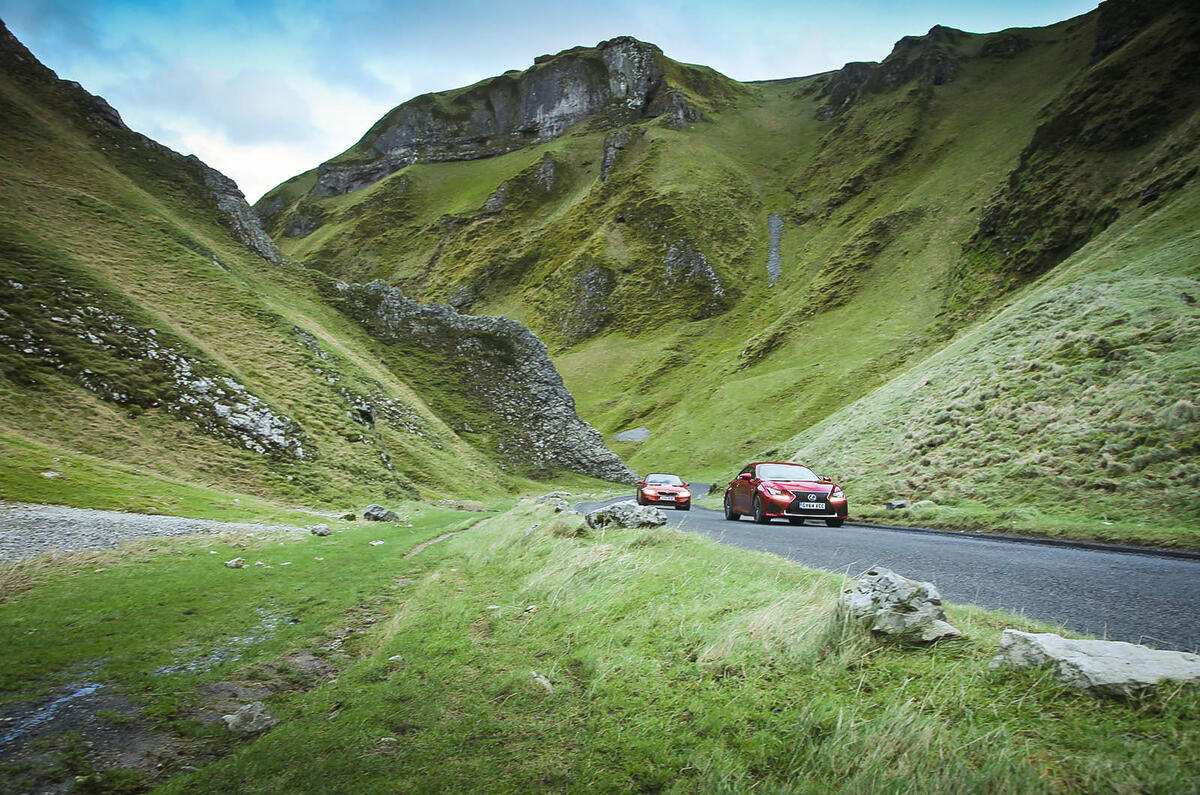
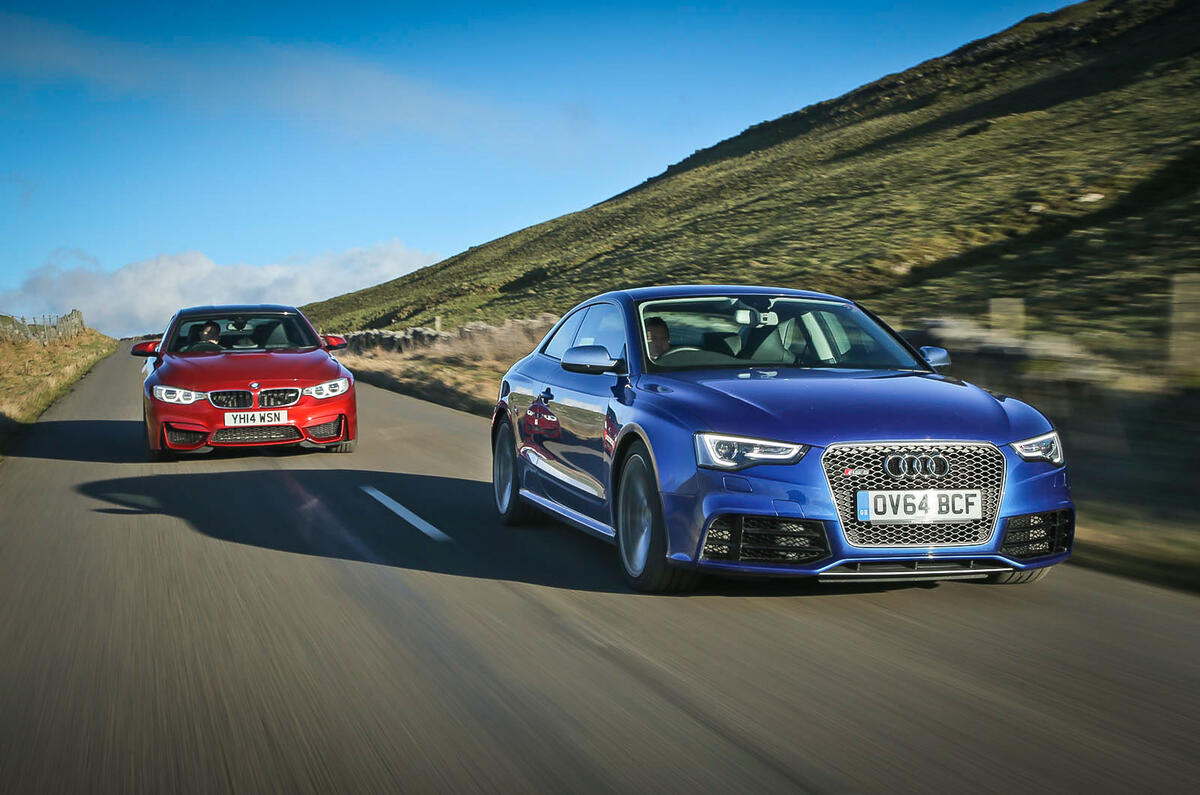
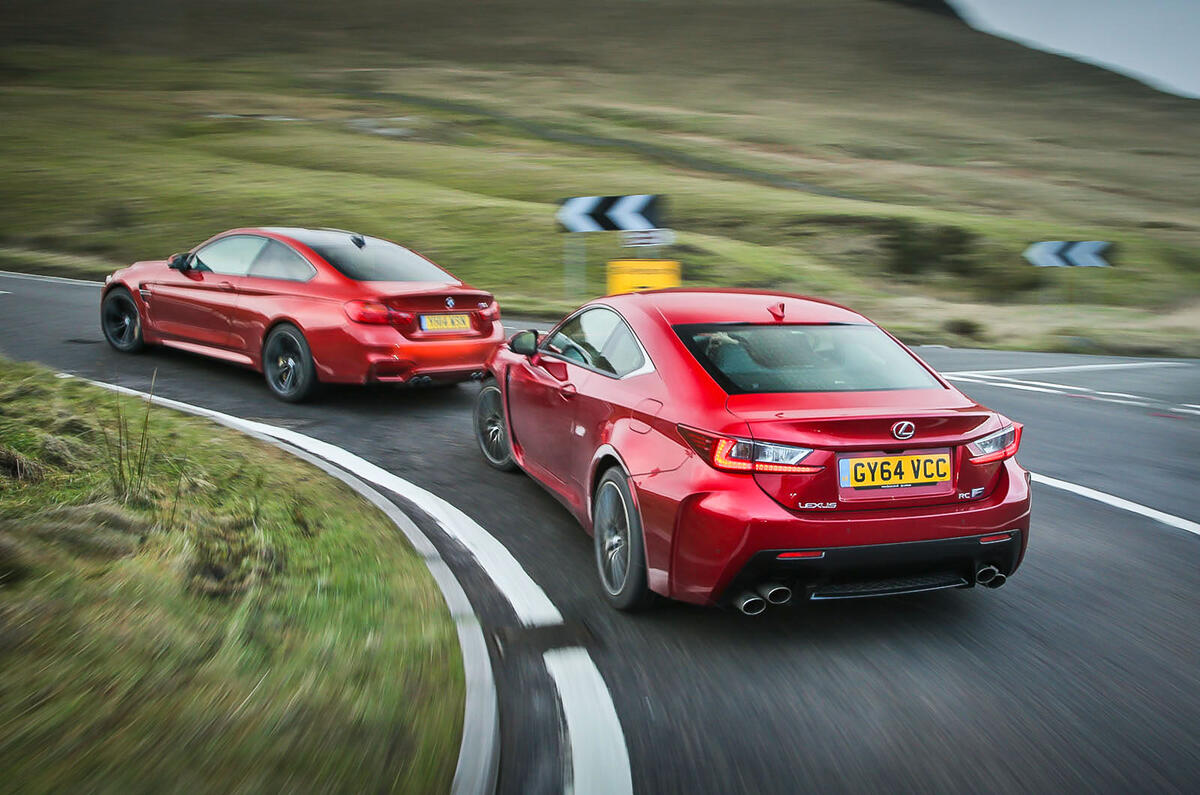

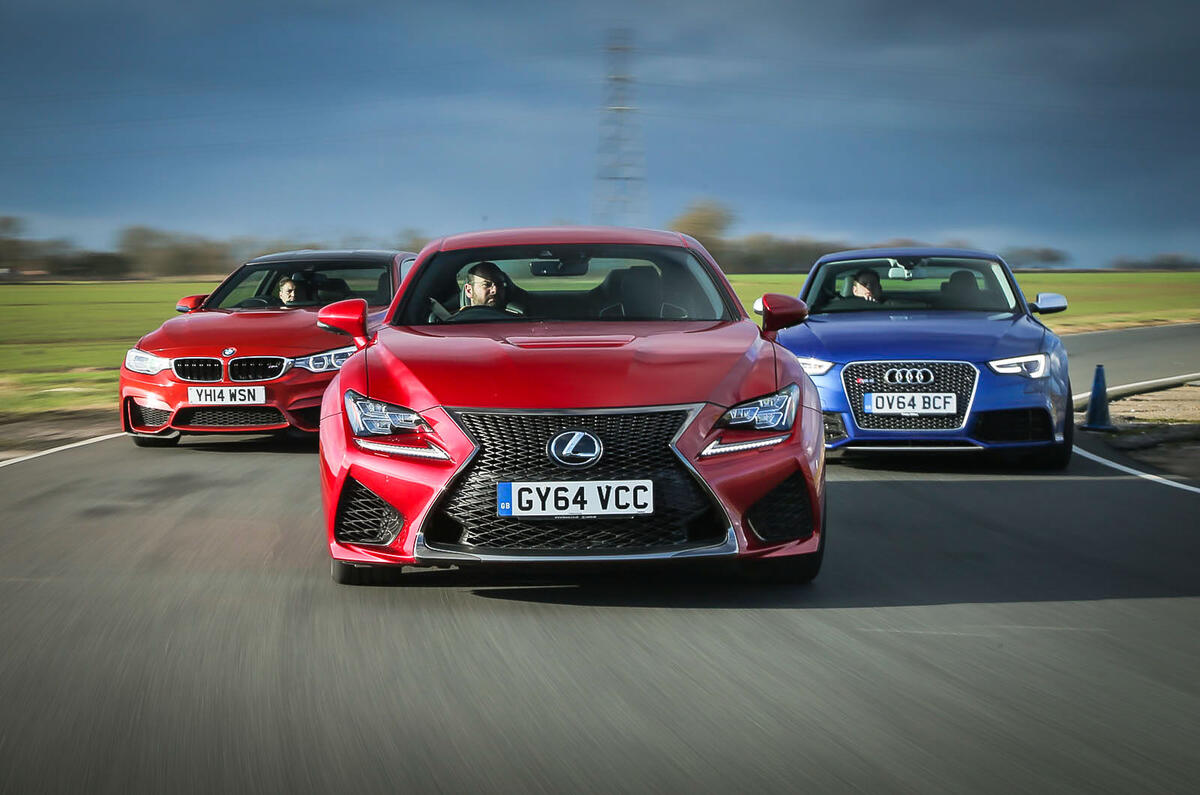
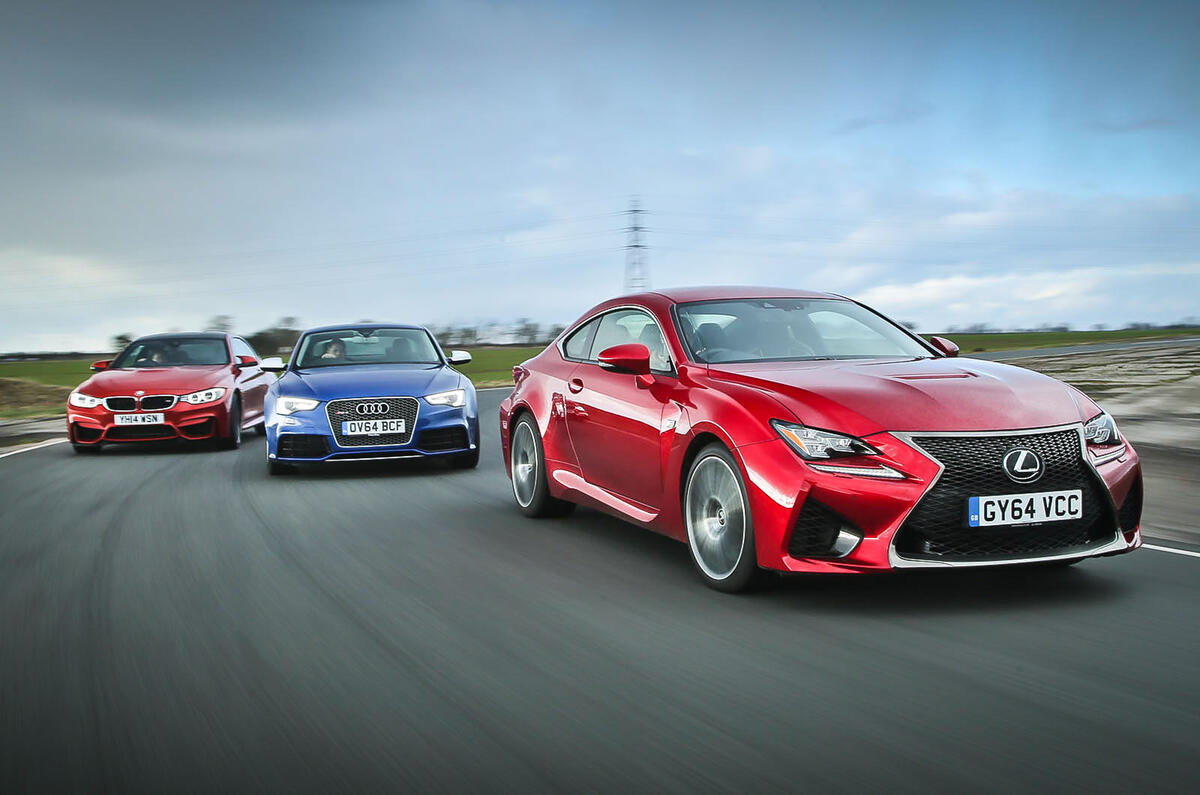
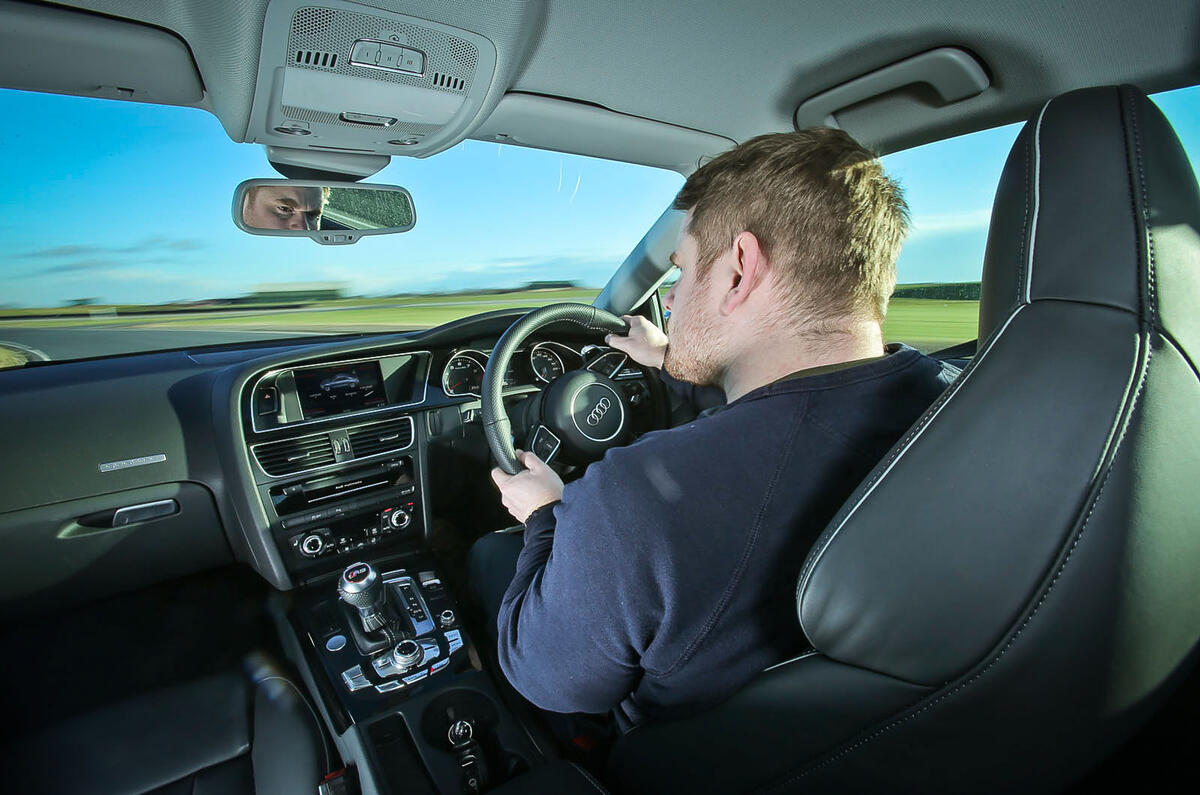
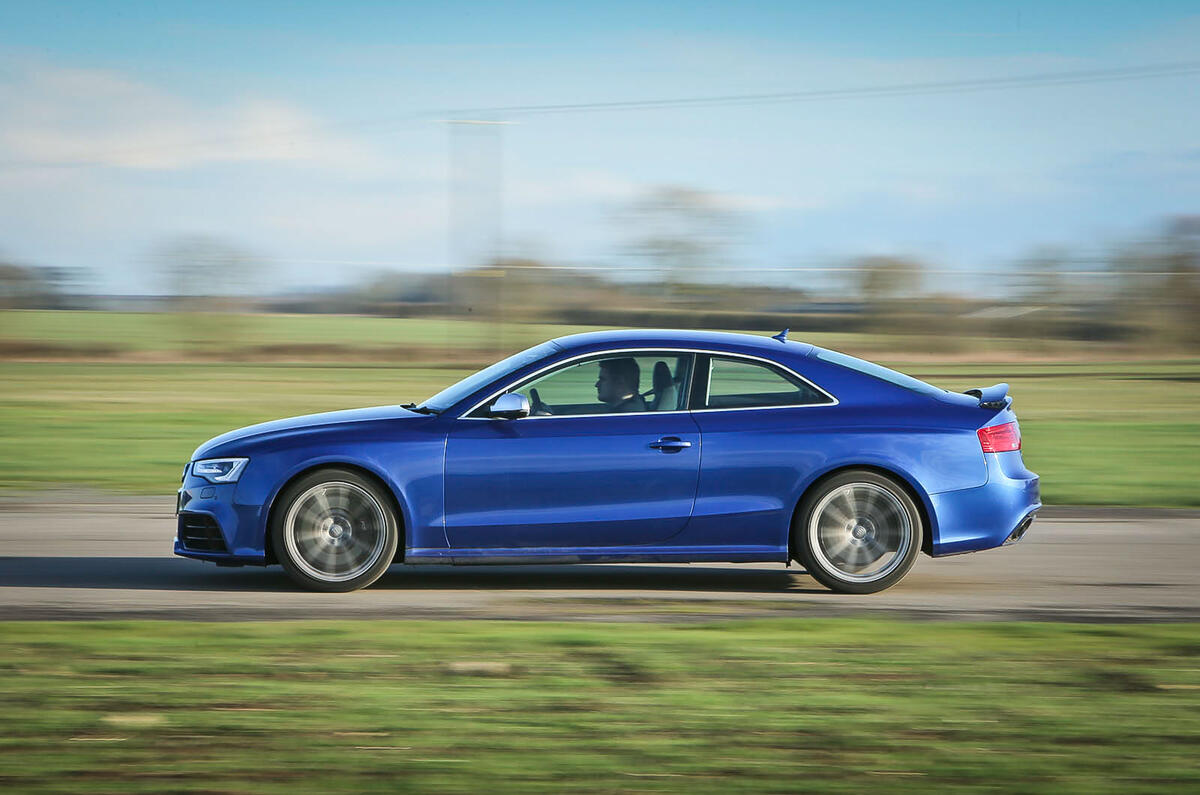
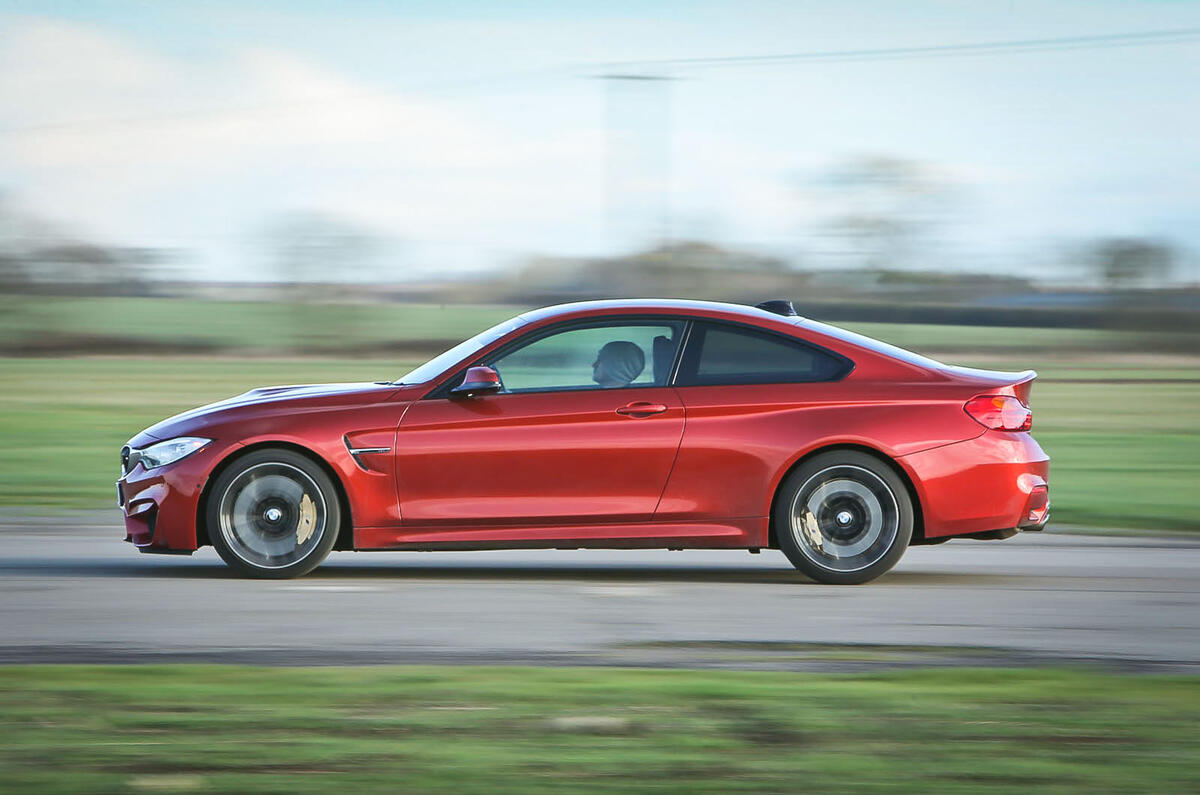
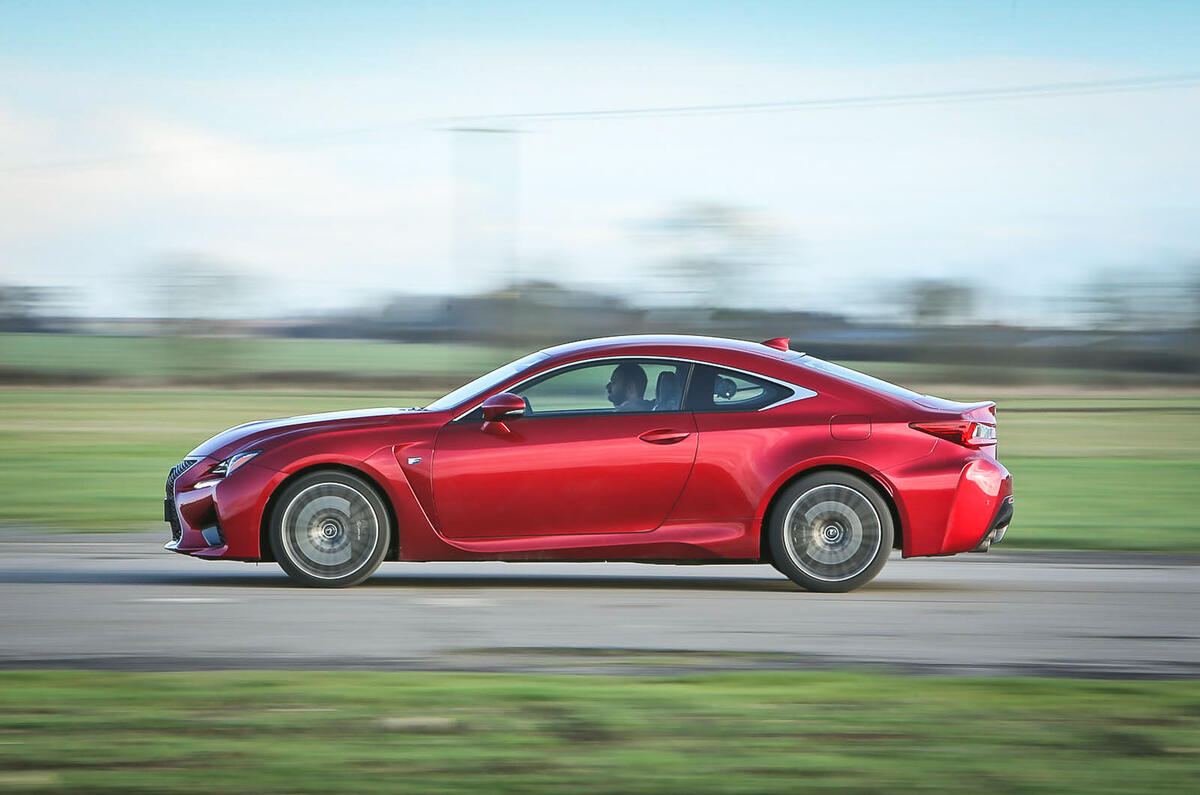
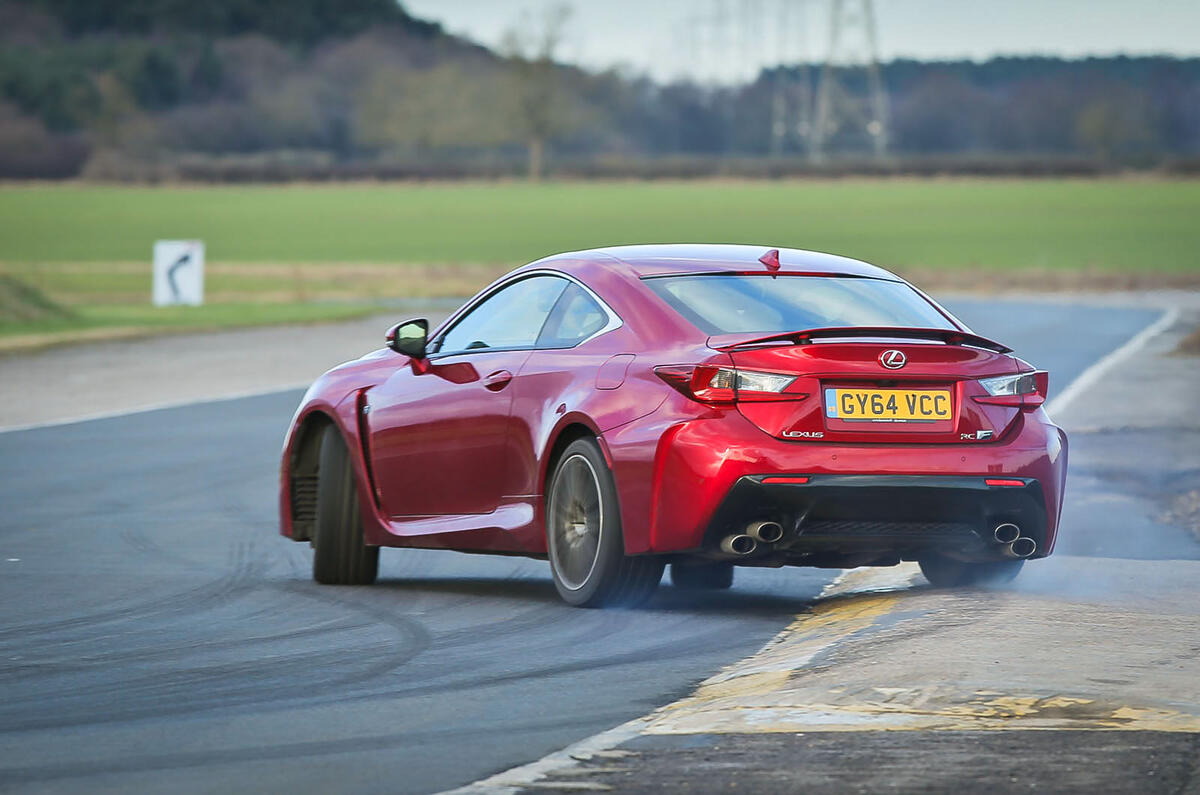
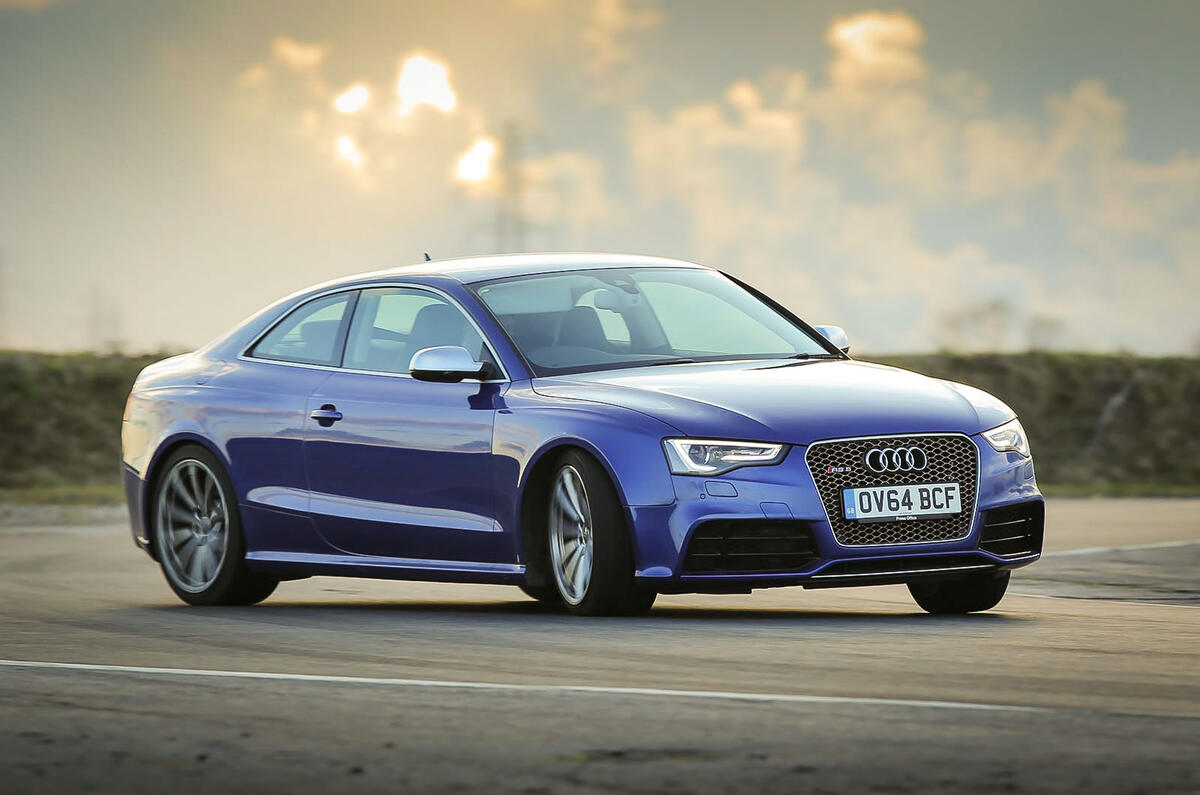
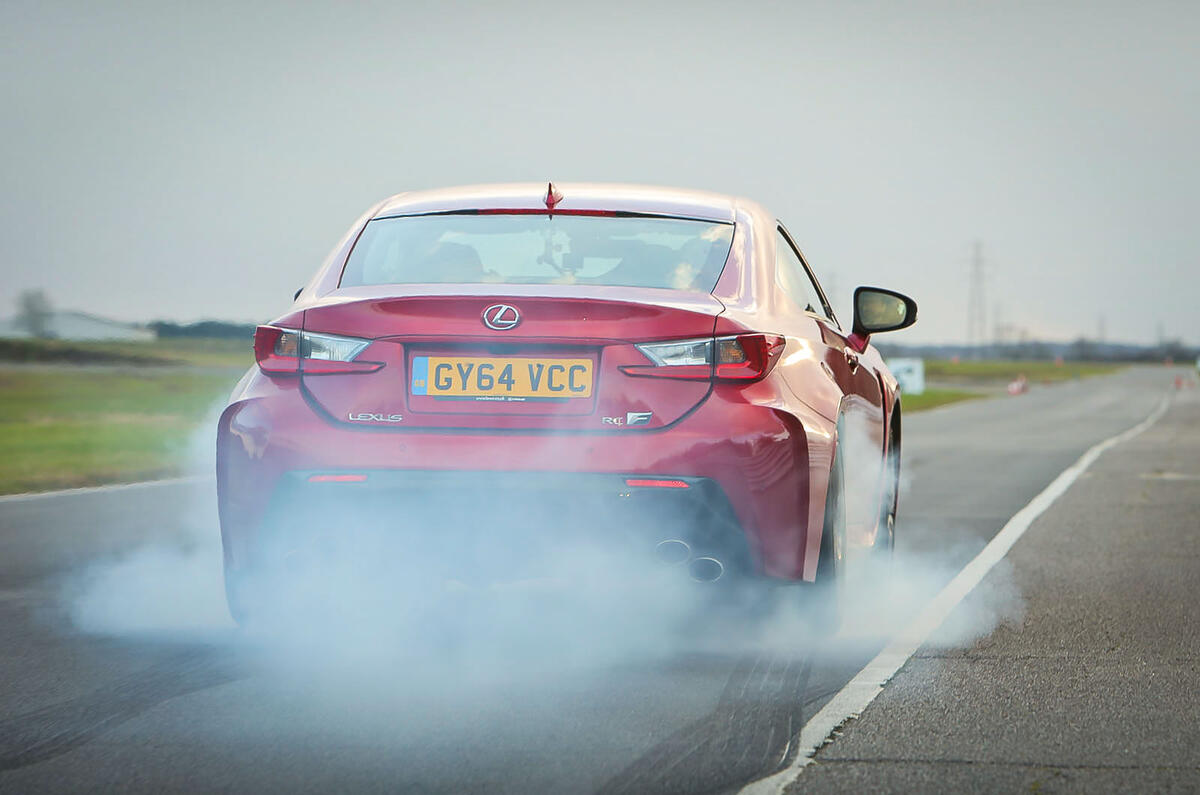
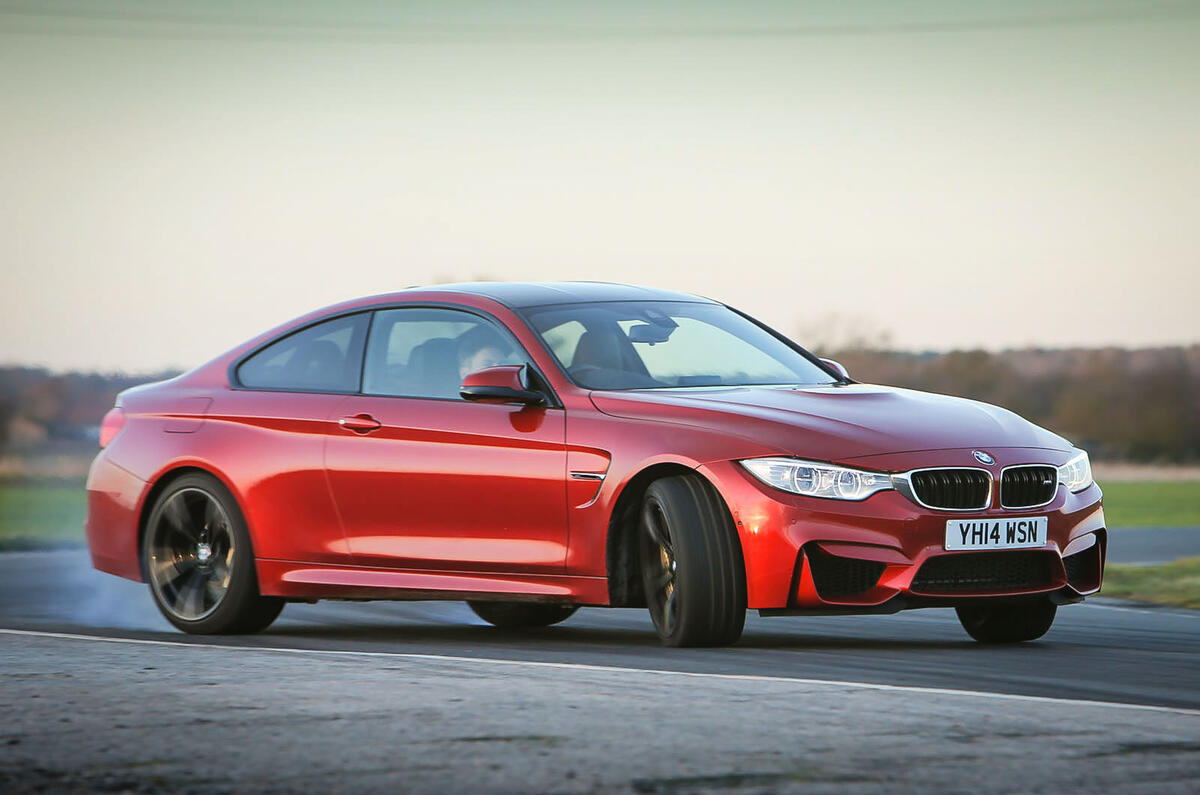
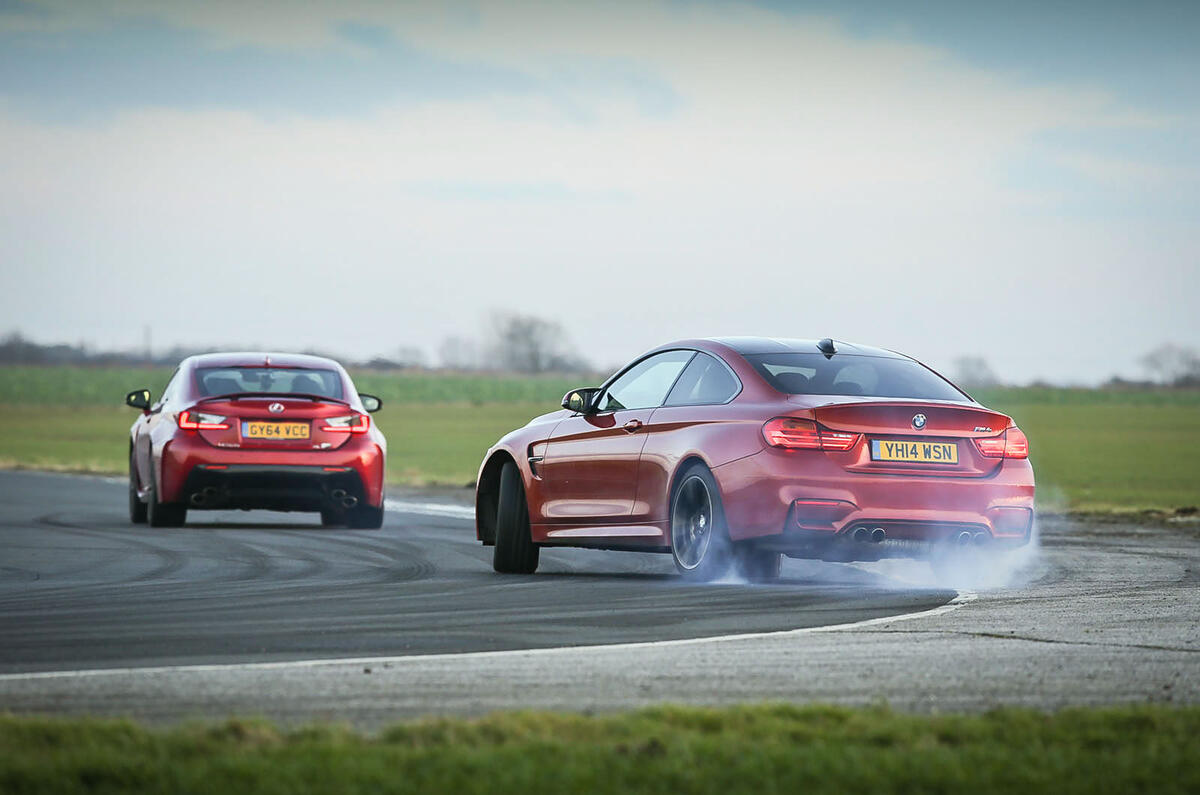
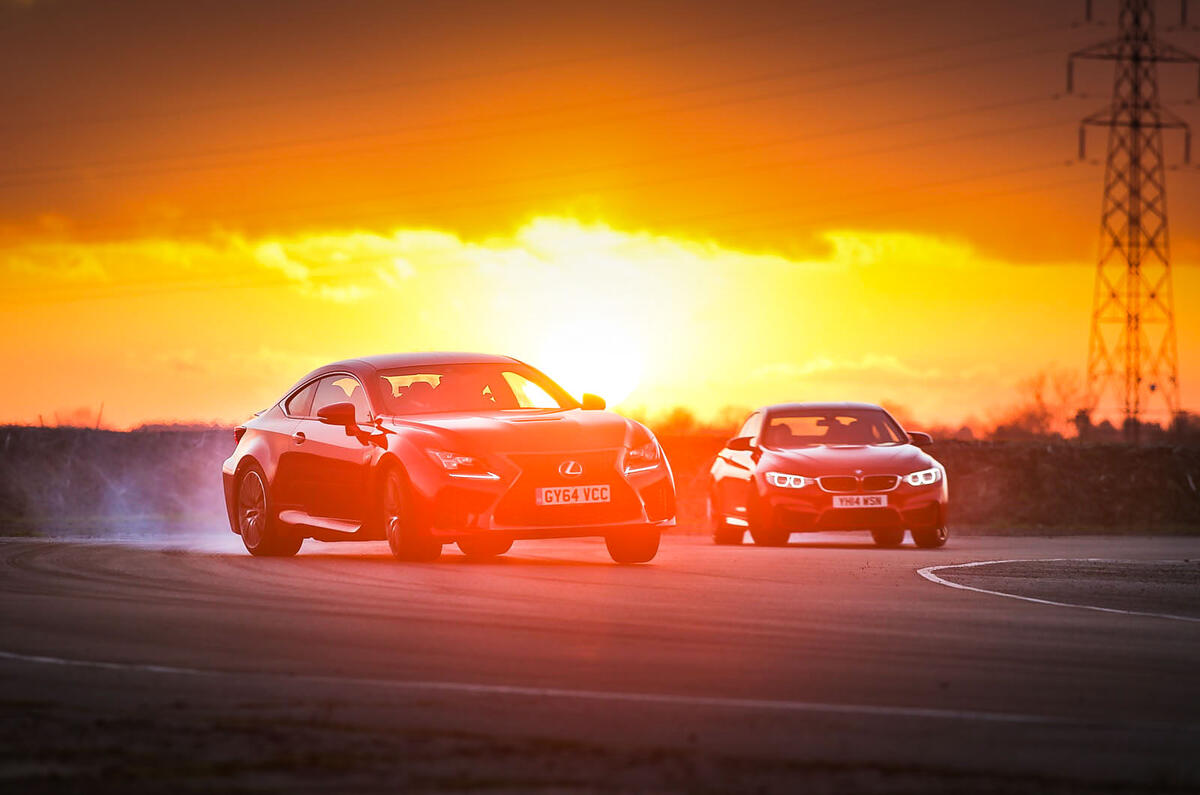
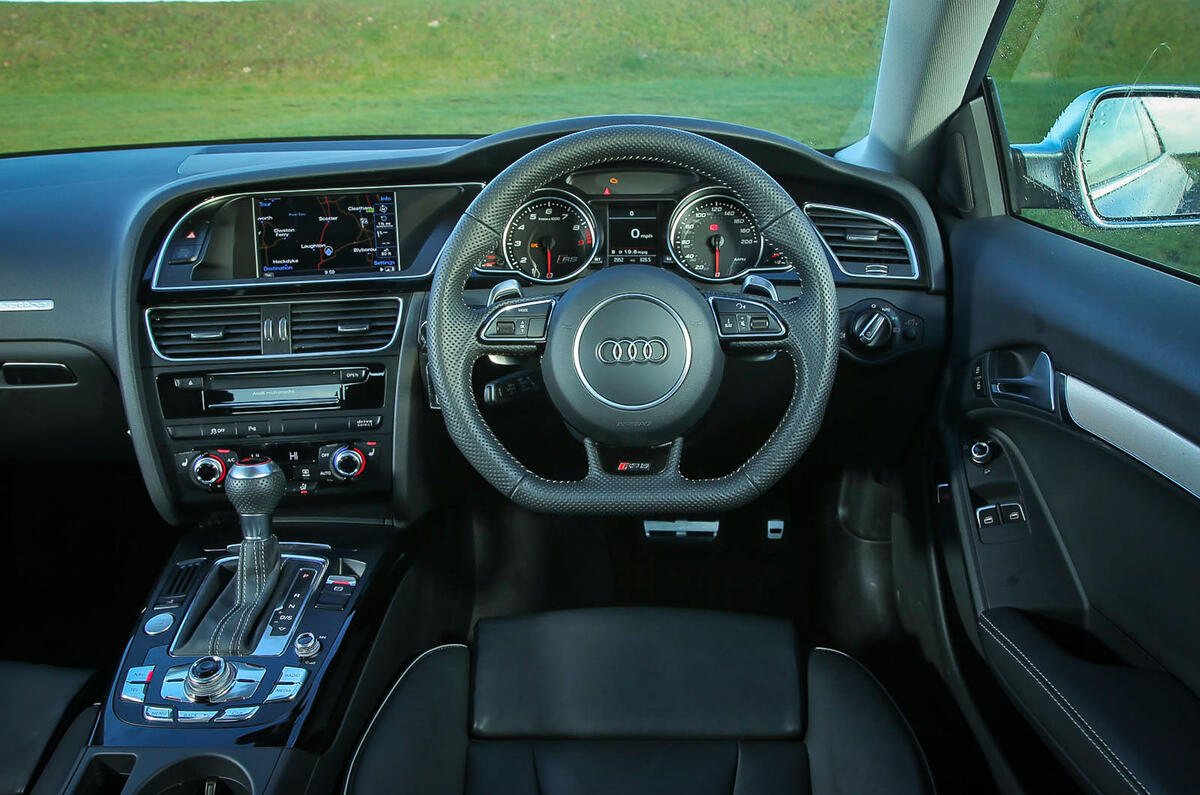
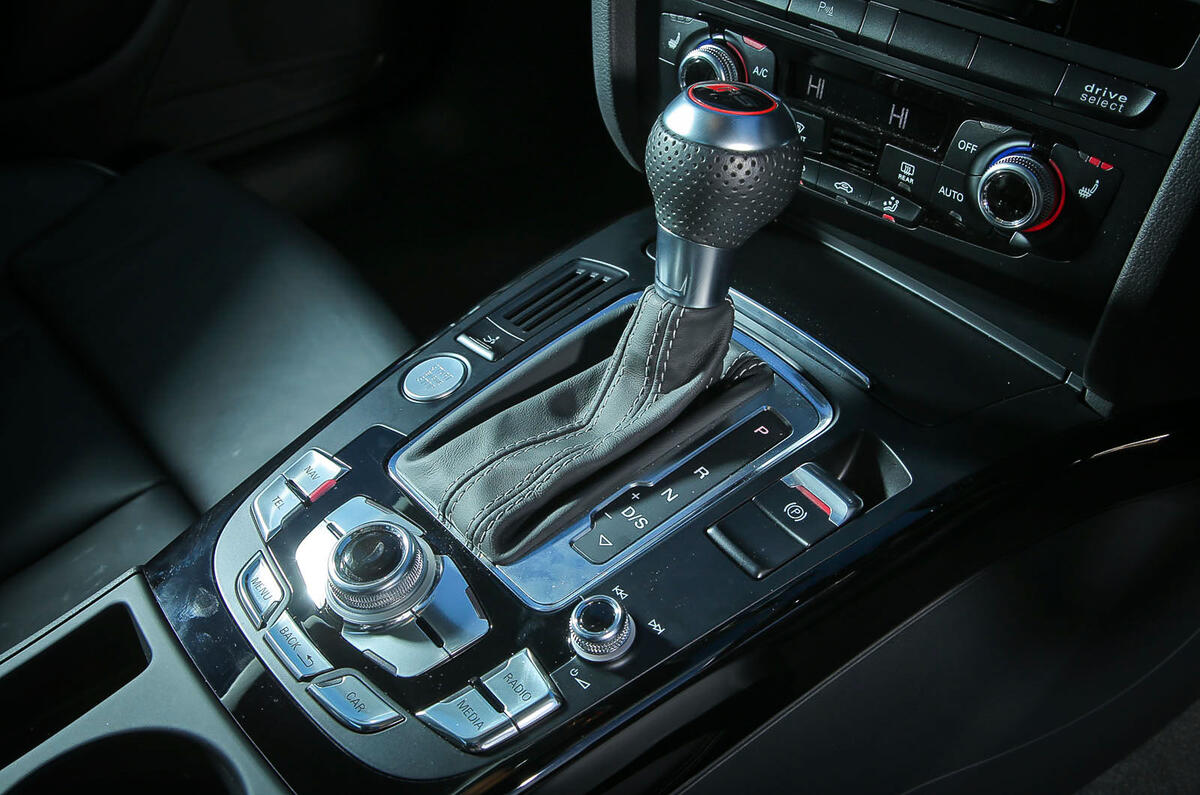
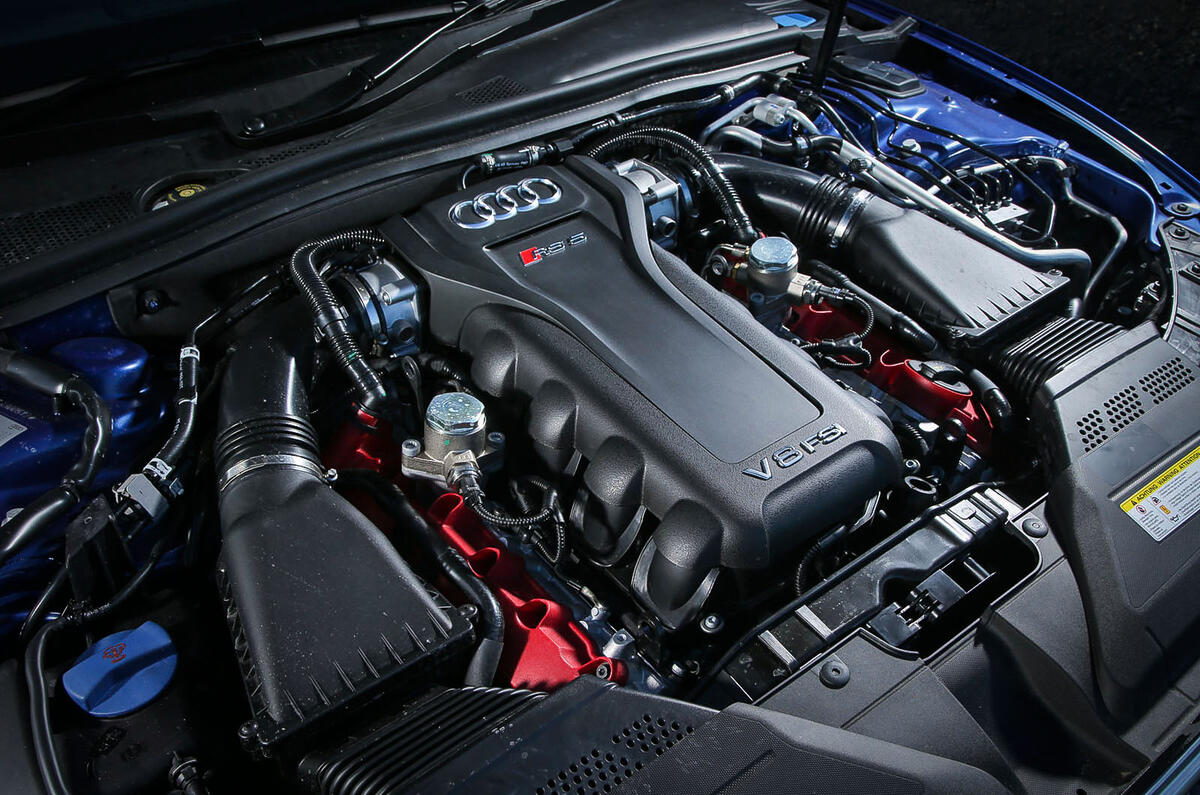
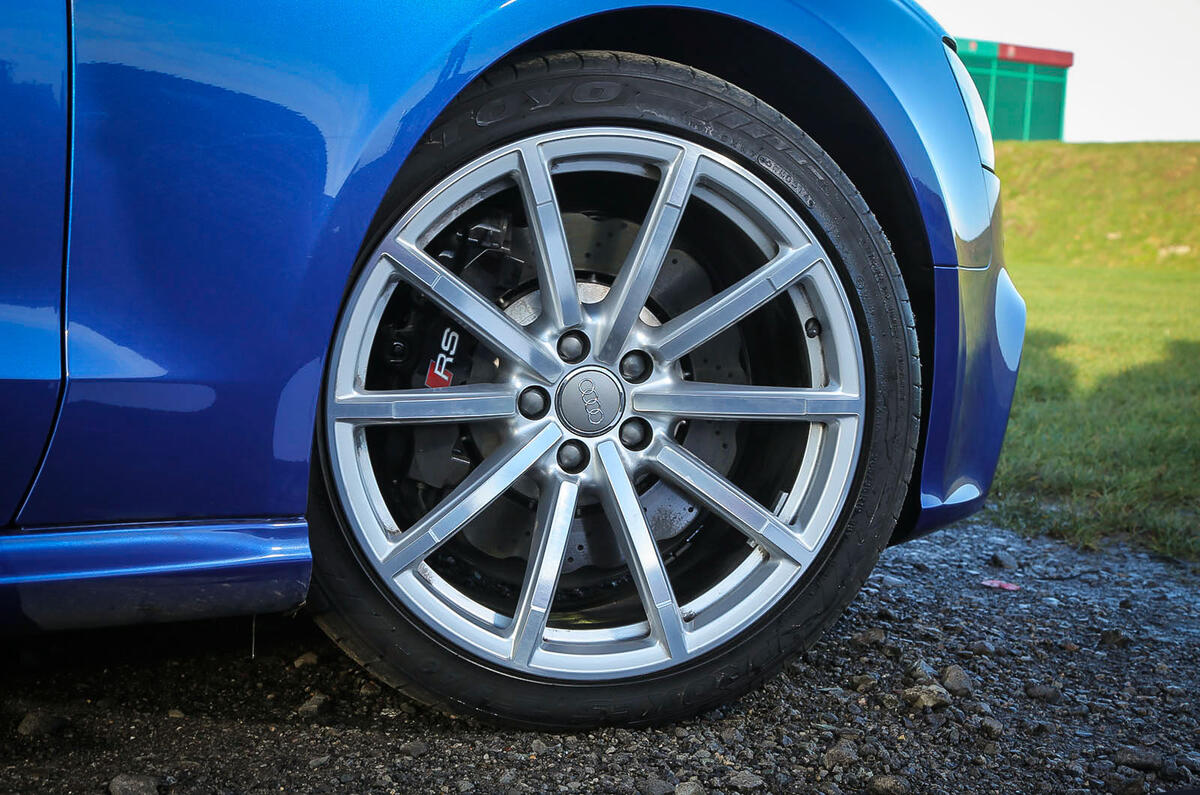
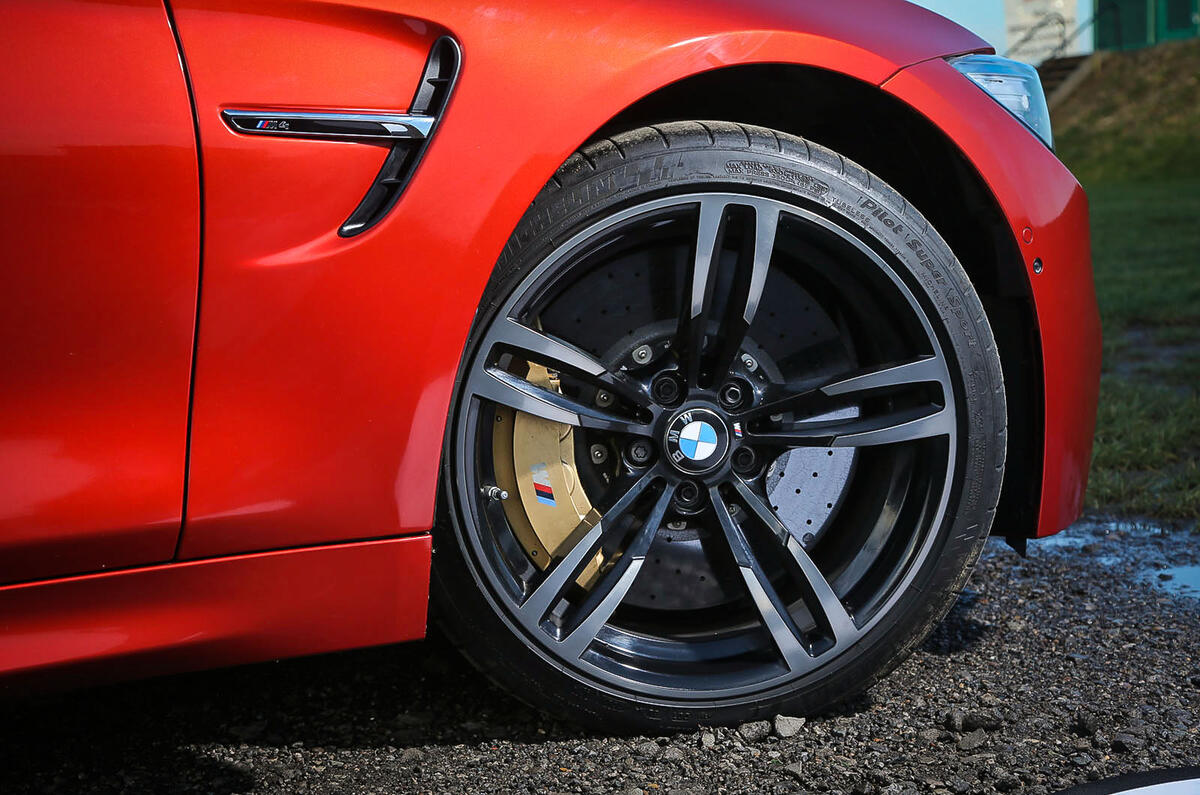
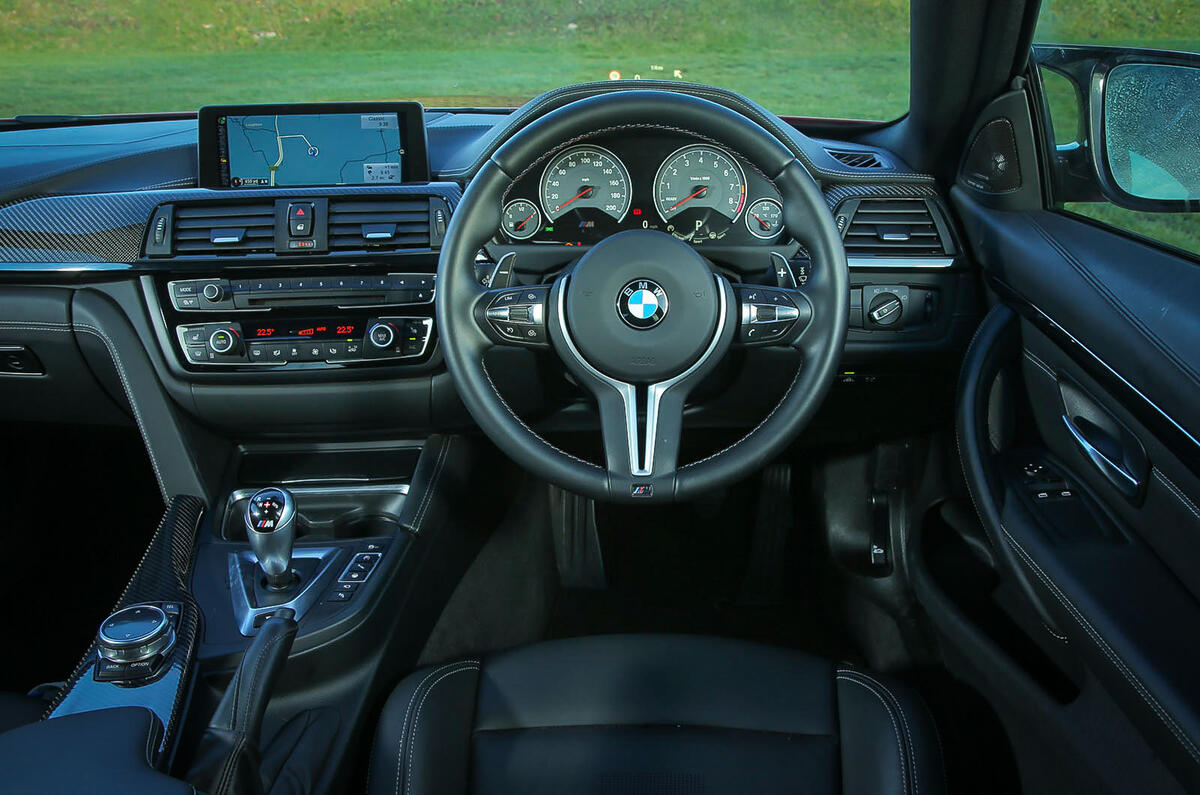
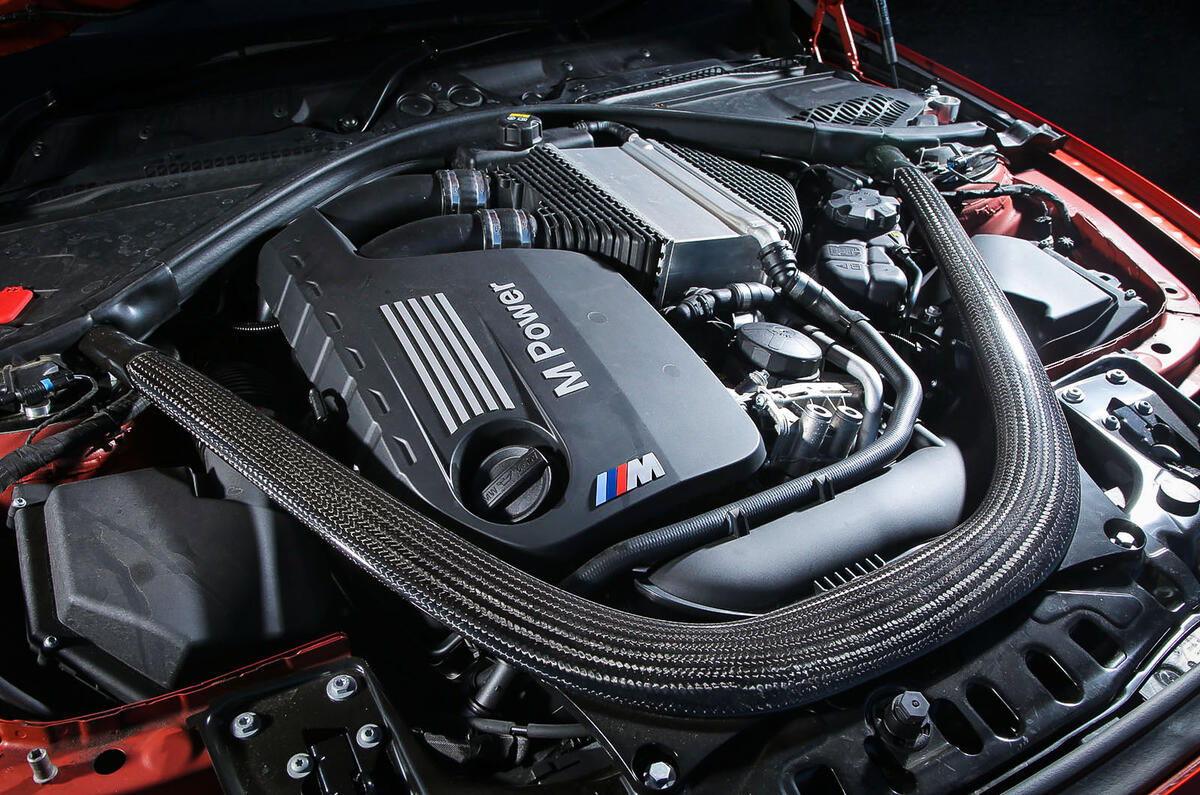
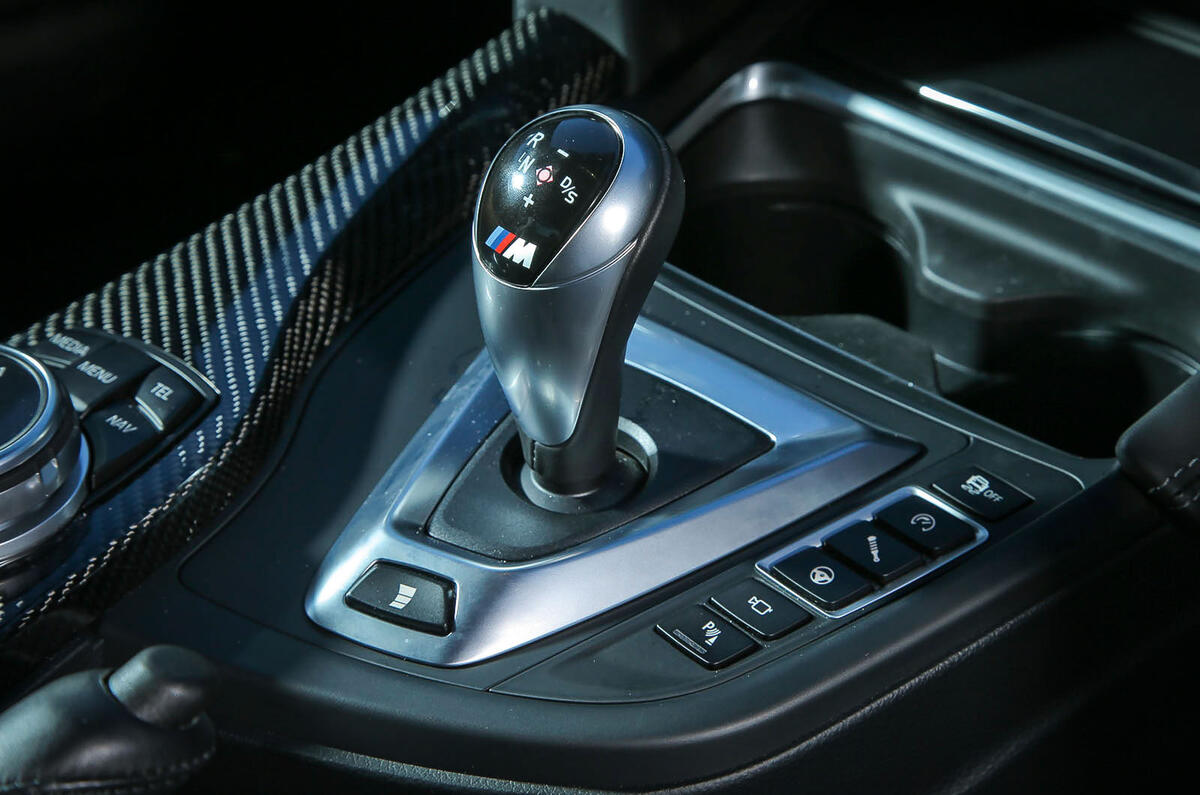
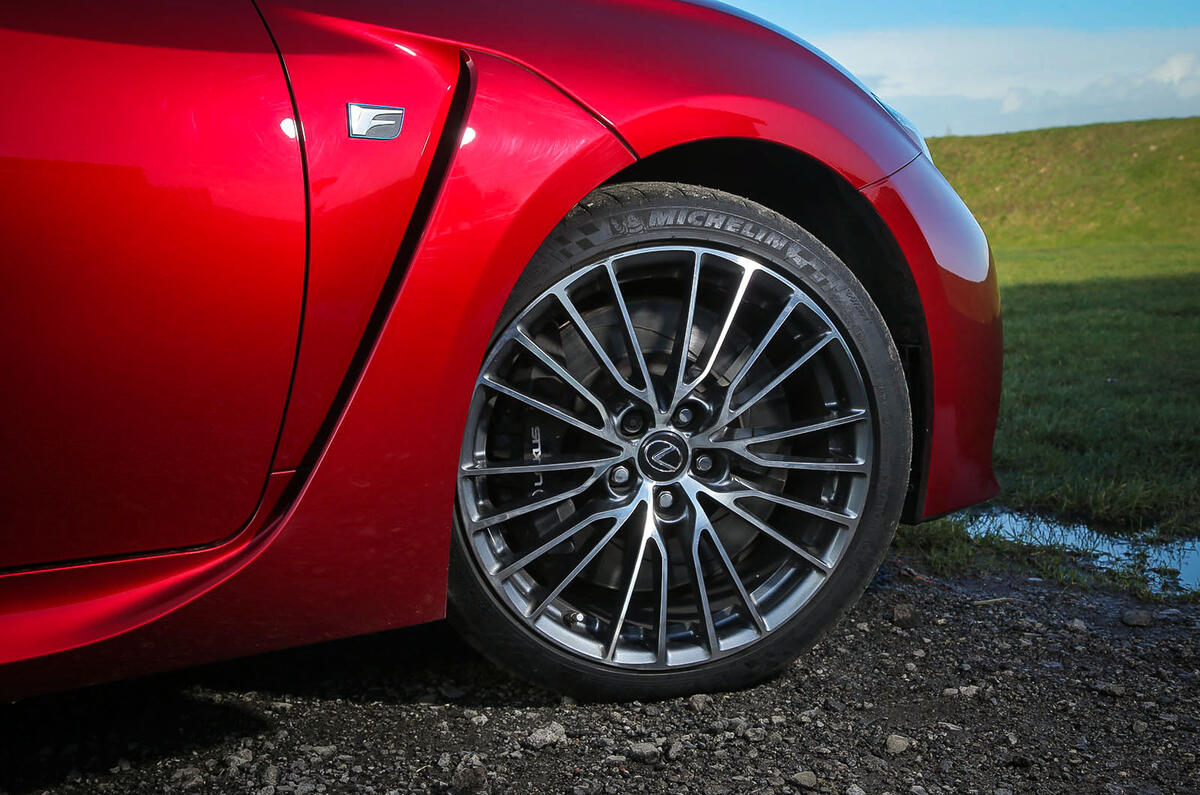
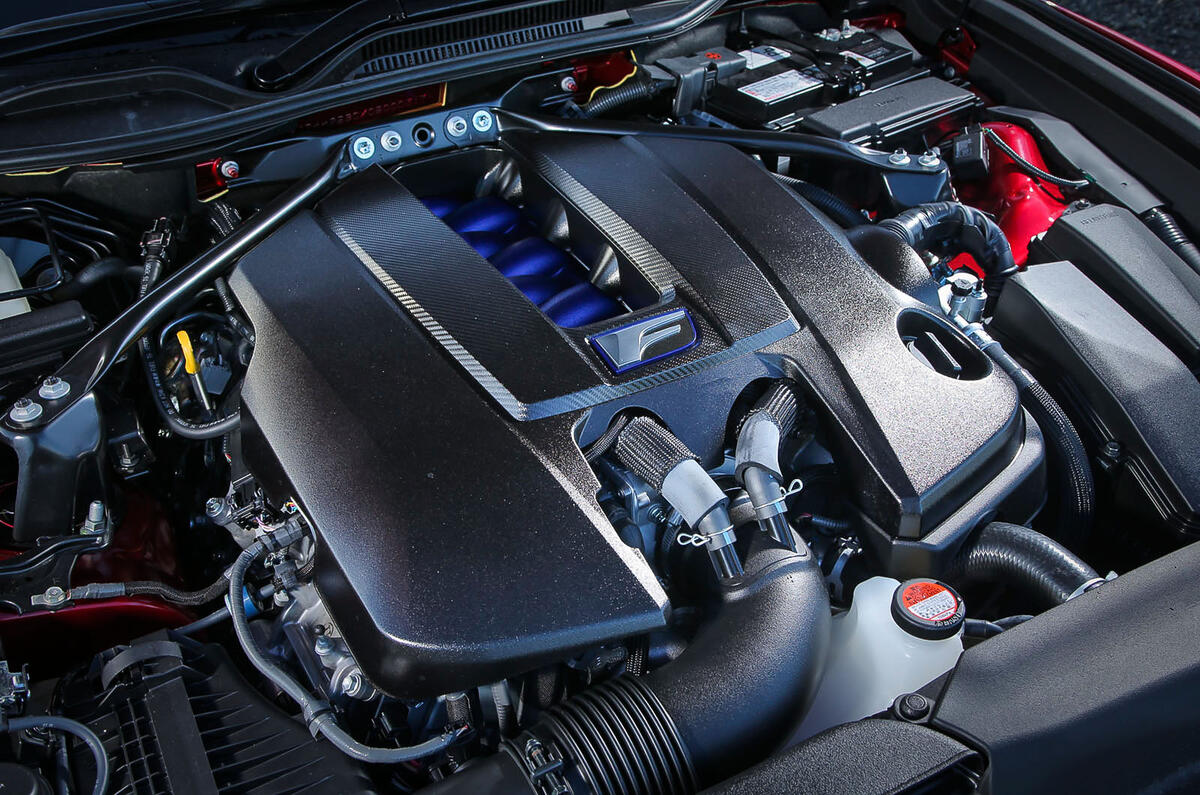
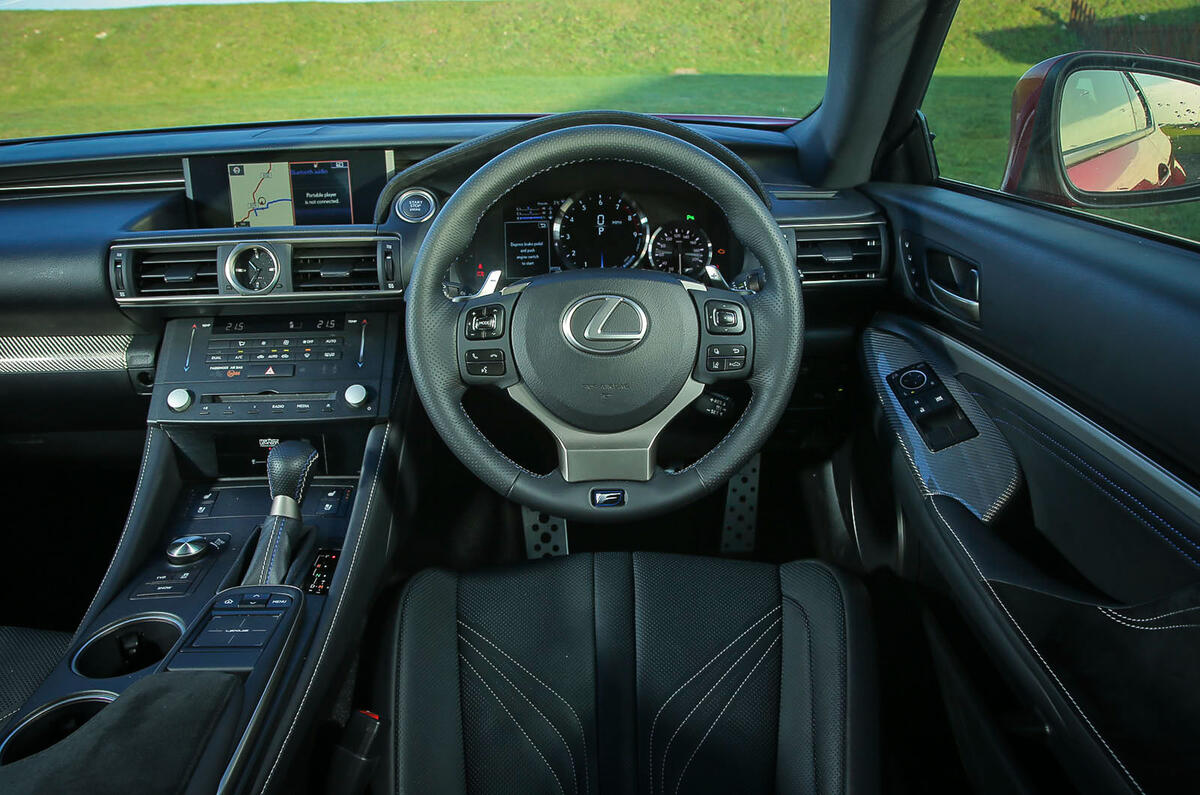
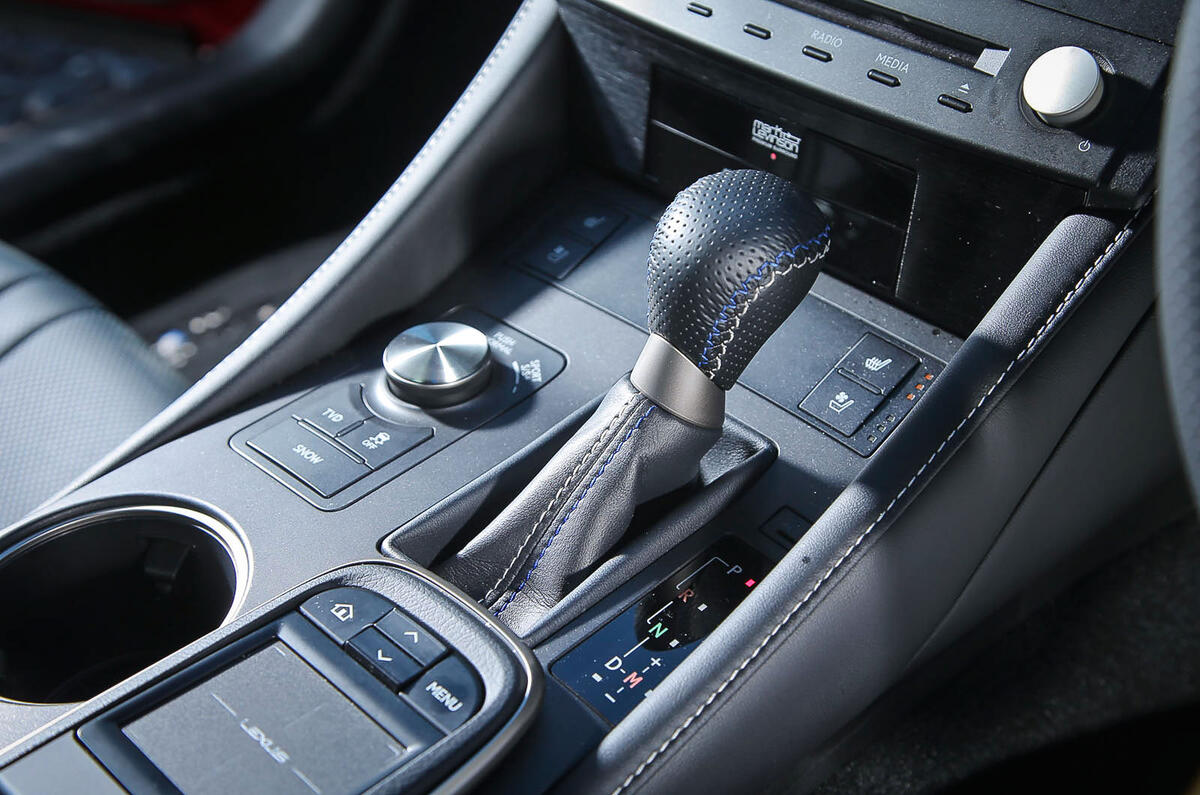












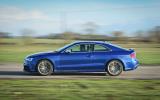









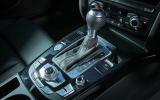
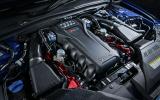

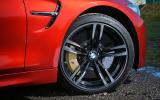

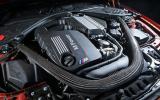

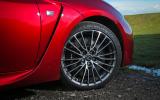
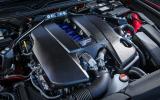
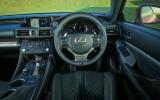



Join the debate
Add your comment
the real world
In the real world, you do not want your premium sports sedan scaring you witless and making you look like an idiot. You do not want a car that in the wet you have to drive slower than the guy in a FWD hot hatch. The car that does that reminds you that, although you used to think of yourself as Walter Rohrl, your are not even close. And for that reason the BMW loses.
Wow
On the contrary; I found it
Lexus wins for me